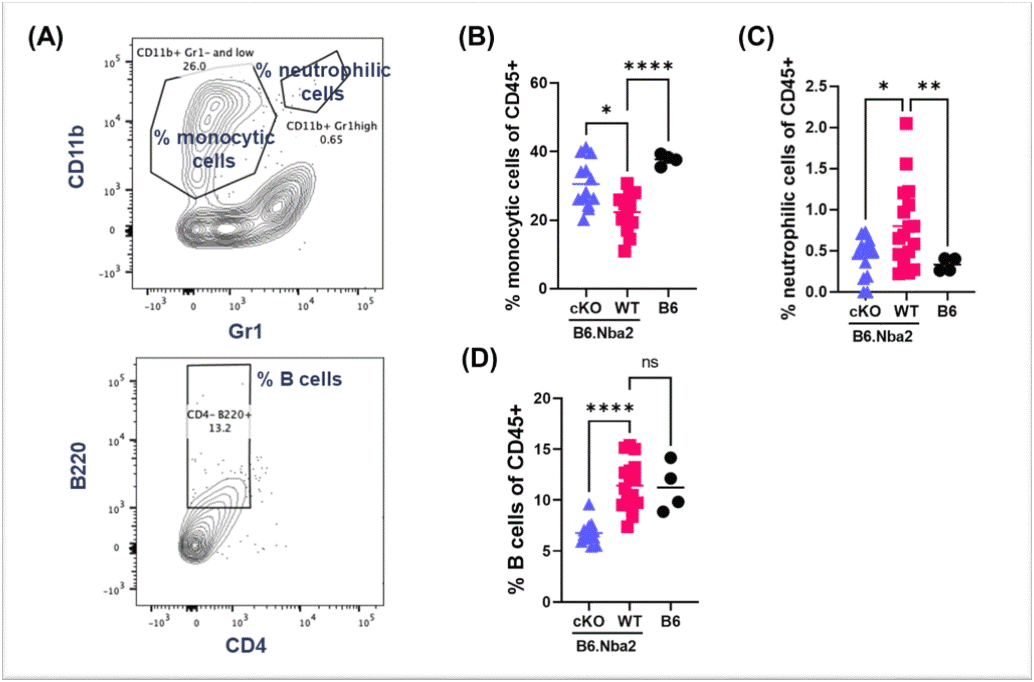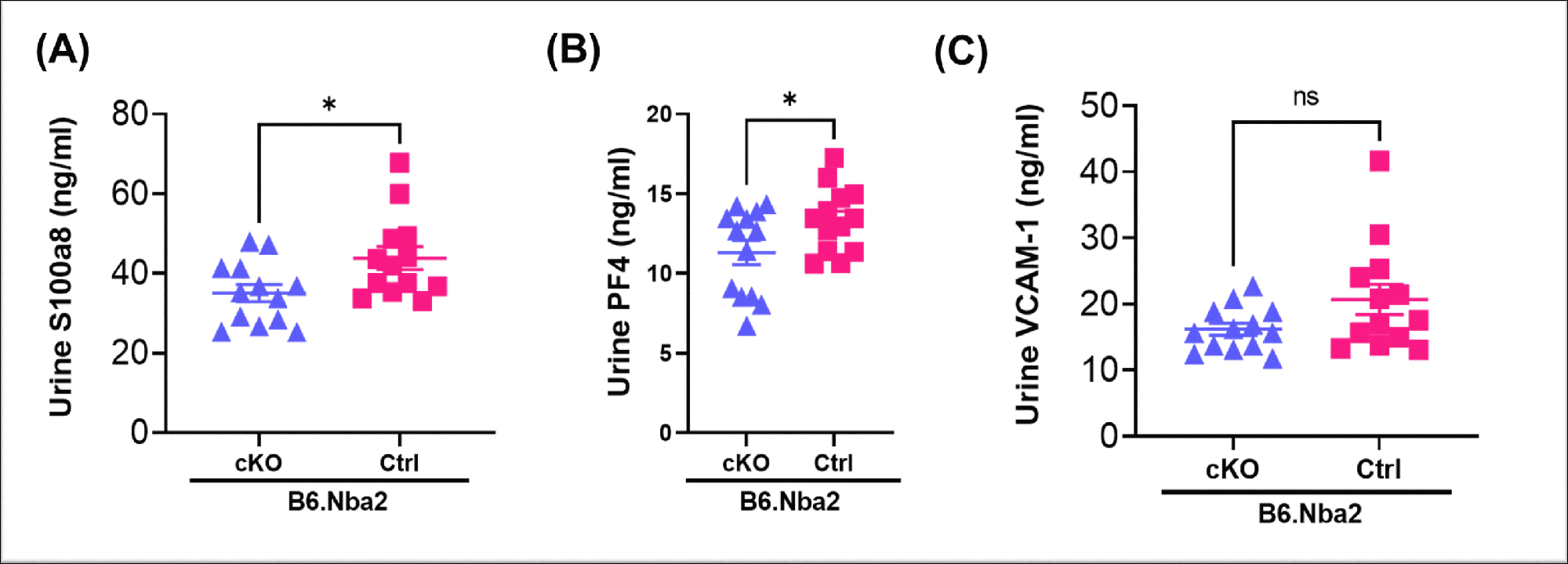Session Information
Session Type: Poster Session B
Session Time: 9:00AM-11:00AM
Background/Purpose: Systemic Lupus Erythematosus (SLE) is an autoimmune disease that can cause damage to multiple organs, including the kidneys in Lupus Nephritis (LN). Current treatments for SLE are limited to conventional disease-modifying anti-rheumatic drugs, while treatments for LN are limited to corticosteroid therapy, as well as Calcineurin inhibitors or Leflunomide, both of which have been studied mainly in Asian populations and are lacking in data. A more targeted therapy is necessary to address the underlying pathogenesis of the disease. Type I interferon (IFN-I) and its receptor (IFNAR) are known to play a significant role in the progression of SLE/LN, making them a major focus of research and therapy. The exact mechanism by which IFNAR expression on myeloid cells affects SLE/LN activity remains unclear.
Methods: Female mice were used to investigate whether deficiency of IFNAR on myeloid cells will drive or reduce disease progression of SLE/LN in B6.Nba2 lupus-prone mice. Study mice were: B6.Nba2.LysMcre/cre.IFNARflx/flx (n=16) (cKO), and control mice were: B6.Nba2 (WT) lupus-prone mice (n=18) and B6 (C57Bl/6) healthy mice (n=4). The tests performed included flow cytometry of kidney cells from 9 month old mice, and ELISA of urine biomarkers S100a8, VCAM-1, and PF4, a novel methodology scarcely done in LN mouse-model studies to analyze LN-related kidney damage without invasive biopsy.
Results: Kidney 9mo flow data revealed elevated neutrophil and decreased monocytic infiltration in the WT, but normalized levels in cKO, as well as specifically reduced levels of B cells in cKO. Furthermore, we found that CD4+ T cells were reduced, CD8+ T cells were elevated, and Double positive (DP) T cells were normalized in 9mo cKO kidneys as compared to WT mice. We observed nephromegaly in cKO mice at 9 mo of age, but the urinary biomarkers S100a8 and PF4 were decreased in 9mo cKO mice compared to WT mice.
Conclusion: In summary, we observed that reduced levels of neutrophilic cells, B cells, CD4+ T cells and DP T cells were associated with reduced levels of urinary biomarkers S100a8 and PF4 in cKO mice, suggesting that neutrophils infiltrate the kidney in a type I interferon-dependent manner, which subsequently results in the secretion of urinary markers previously found to be associated with nephritis in both pediatric and adult SLE-LN patients. Thus, we suggest that in response to type I interferons neutrophilic cells are recruited to the kidney, leading to the release of chemokines and the further recruitment of inflammatory lymphocytes, ultimately resulting in renal cell damage and the development of LN.
Each symbol represents one mouse. * p<0.05, ** p<0.01, *** p<0.001, **** p<0.0001
Each symbol represents one mouse. ** p<0.01, *** p<0.001, **** p<0.0001
Each symbol represents one mouse. * p<0.05, ** p<0.01, *** p<0.001, **** p<0.0001
To cite this abstract in AMA style:
Jorgensen T, Han L. Involvement of Type I Interferon-responsive Myeloid Cells in Renal Inflammation in a Lupus Mouse Model [abstract]. Arthritis Rheumatol. 2023; 75 (suppl 9). https://acrabstracts.org/abstract/involvement-of-type-i-interferon-responsive-myeloid-cells-in-renal-inflammation-in-a-lupus-mouse-model/. Accessed .« Back to ACR Convergence 2023
ACR Meeting Abstracts - https://acrabstracts.org/abstract/involvement-of-type-i-interferon-responsive-myeloid-cells-in-renal-inflammation-in-a-lupus-mouse-model/



